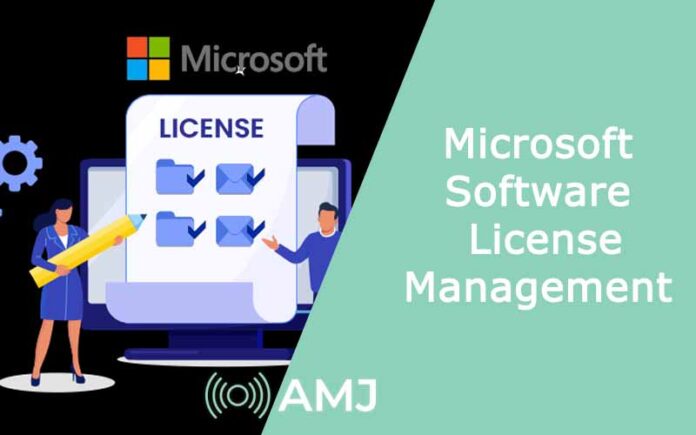Microsoft offers a wide range of software products to businesses. Software that is unique and serves a specific purpose: helping businesses to simplify their operations. While using these software products is beneficial, it can be difficult to manage these licenses when you have many. Cubes is a Microsoft software license management system that provides users with a clear view of their Microsoft licenses. Users can see a snapshot of their license count, see expiration dates and renewal times. Cubes even allows for easy payments when a subscription comes due.
With multiple software licenses, it can be difficult for a company to manage them all. The best way to Manage Microsoft Software Licenses is to use software like Cubes.
Understanding The Basics Of Microsoft Licensing
Before exploring the types of Microsoft licenses, it’s important to learn the basics. To put it in simple words, Microsoft licenses allow individuals and businesses to use their software. These legal agreements come with programs provided by the tech giant.
Microsoft’s software programs, are tailored to meet specific requirements. Different customers use different software products and take advantage of the unique features and benefits.
Microsoft software licenses provide access to software, support, and updates. However, the type of license provided may vary depending on factors like the number of users, terms of usage, and features involved.
It’s worth noting that Microsoft licensing is complicated and requires users to stay compliant with the terms and conditions. Failing to do so could lead to legal issues or penalties.
Types Of Microsoft Licenses
Microsoft provides a range of licensing options to cater to various needs and requirements. To give you a better idea, we have provided an overview of the different types of licenses.
-
Retail License
This type of license is provided to individuals as they are designed for personal use. In other words, it is bought by consumers who need only one or a few licenses.
The good thing about retail licenses is that they can be purchased directly from Microsoft or authorized retailers. Also, they come with a product key that is needed during the installation process.
As for features, retail licenses include the right to use the software on a personal device. Additionally, it provides access to updates and support. In comparison to other Microsoft licenses, retail licenses are more flexible and can be transferred to a new device if the original one is no longer in use.
-
Original Equipment Manufacturer (OEM) License
This license type is particularly meant for computer manufacturers and system builders. Unlike retail licenses, OEM licenses are sold to manufacturers who pre-install Windows on new computers before selling them.
A unique thing about these licenses is that they are tied to the hardware they are installed on, meaning they cannot be transferred to other devices.
As far as features are concerned, OEM licenses are more affordable than retail licenses. However, they have additional restrictive terms, including limited software support from Microsoft.
-
Volume License
The third type of licensing is volume license which is targeted at businesses, educational institutions, and large enterprises. These licenses are designed for organizations that need to purchase multiple licenses at once. This makes it ideal for companies and institutions with numerous users or devices.
The good thing about volume licensing agreements is that they can be customized to fit the specific needs of the organization. For example: the number of licenses and additional features.
Volume license offers various benefits, including discounted pricing, flexible deployment options, and additional management tools. Additionally, they come with extended support options along with the ability to manage software deployment across multiple devices.
How Do Companies Manage Microsoft Software Licenses?
Some companies still use Excel to manage Microsoft software licenses. This process is not only time-consuming but also troublesome. Instead of struggling with Excel sheets, it is better to use Cubes, which is specifically designed to streamline the software license management process.
The best thing about Cubes is that it simplifies the migration of license data by connecting users directly to vendors. Not only that, but it also helps users to upload existing spreadsheets quickly.
A unique thing about Cubes is that it is an AI-driven tool that can automatically map data from your spreadsheets to the correct fields. This is one reason; why companies rely heavily on Cubes to manage their software licenses.
How Cubes Is Helpful For Companies?
Using Cubes to manage Microsoft software licenses can be beneficial in various ways. It eliminates the complications associated with managing software licenses in Excel. Some of the main benefits of using Cubes include:
-
Streamline Your Workflow
Cubes is designed to simplify and enhance your workflow through advanced automation. With the help of this tool, you can eliminate repetitive tasks associated with managing software inventories and spreadsheets.
Additionally, Cubes allows you to upload and transfer spreadsheets with ease and generate software records at regular intervals based on your custom preferences. Cubes also have integrated payment link options that allow users to access payment sites quickly. This helps you to manage your software licenses efficiently and never miss a renewal deadline.
-
Efficient Inventory Management
Cubes offers a streamlined approach when it comes to inventory management. It offers a unified dashboard that provides an overview of all your company’s software licenses.
By accessing this dashboard, you can easily filter data by software name, department, or vendor. This makes it easier to access specific information whenever required. In other words, Cubes provides a modern, efficient way of managing software licenses.
In today’s competitive business environment, it has become extremely crucial for companies to adopt technologies like Cubes. With the help of this AI-powered tool, you can easily manage software licenses without complications. This is one reason; why companies are transitioning from traditional spreadsheet management to an advanced license management tool like Cubes. It provides a more effective and cost-efficient approach to handling your software inventory.












![Index of Money Heist [Season 1, 2, 3 & 4 – All Episodes, Cast and Plot] Index of Money Heist](https://www.asiamediajournal.com/wp-content/uploads/2021/05/Index-of-Money-Heist-3-100x70.jpg)